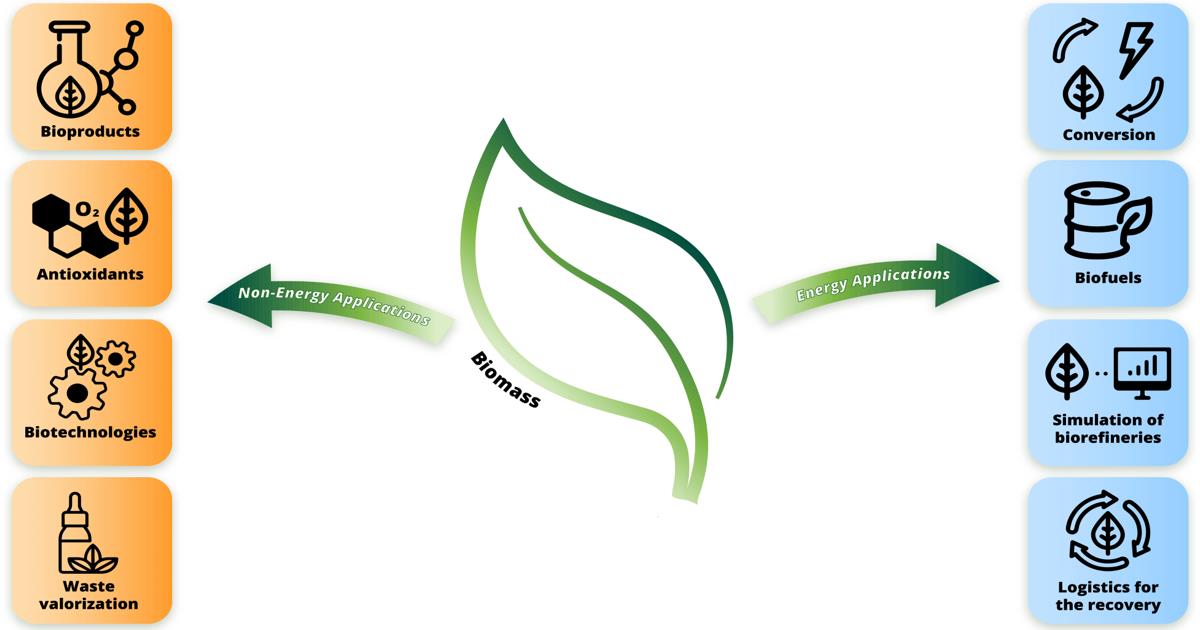- 2.8Impact Factor
- 5.5CiteScore
- 15 daysTime to First Decision
Research on Conversion and Utilization of Waste Biomass
This special issue belongs to the section “Environmental and Green Processes“.
Special Issue Information
Dear Colleagues,
The valorization and utilization of biomass have taken a leading role on the international stage. This Special Issue of Processes focuses on innovative research on the conversion and use of waste biomass, with an emphasis on both its energy and non-energy applications.
Biomass represents a renewable and diverse resource of plant and animal origin, whose versatility allows its application in key sectors such as the production of biofuels, biochemicals, bioproducts, advanced materials, and functional additives. This Special Issue aims to gather cutting-edge research exploring new methods for converting waste biomass, emerging technologies in biorefineries, and innovations that maximize its utilization in both energy applications and the production of high-value-added products.
Key topics include, but are not limited to, the following:
Energy Applications of Waste Biomass
- Mechanical, thermal, chemical, and biochemical conversion of biomass.
- Processes for sustainable biofuels.
- Integration, optimization, and simulation of biorefineries.
- Logistics processes for the recovery and utilization of waste biomass.
Non-Energy Applications of Waste Biomass
- Production, extraction, and development of biopolymers, biochemicals, and nanomaterials from biomass.
- Development and application of functional additives with antioxidant and antimicrobial properties.
- Modeling, simulation, and life cycle analysis of biomass-based technologies.
- Innovations in the valorization of agro-industrial and urban waste.
This Special Issue offers a platform for researchers and professionals interested in addressing the technical, economic, and environmental challenges where biomass plays a key role. We invite the scientific community to contribute original research articles, reviews, and case studies that advance this field of research and accelerate the path toward a more sustainable future.
Dr. Marcos Alberto Coronado Ortega
Dr. José Ramón Ayala Bautista
Guest Editors
Manuscript Submission Information
Manuscripts should be submitted online at www.mdpi.com by registering and logging in to this website. Once you are registered, click here to go to the submission form. Manuscripts can be submitted until the deadline. All submissions that pass pre-check are peer-reviewed. Accepted papers will be published continuously in the journal (as soon as accepted) and will be listed together on the special issue website. Research articles, review articles as well as short communications are invited. For planned papers, a title and short abstract (about 250 words) can be sent to the Editorial Office for assessment.
Submitted manuscripts should not have been published previously, nor be under consideration for publication elsewhere (except conference proceedings papers). All manuscripts are thoroughly refereed through a single-blind peer-review process. A guide for authors and other relevant information for submission of manuscripts is available on the Instructions for Authors page. Processes is an international peer-reviewed open access semimonthly journal published by MDPI.
Please visit the Instructions for Authors page before submitting a manuscript. The Article Processing Charge (APC) for publication in this open access journal is 2400 CHF (Swiss Francs). Submitted papers should be well formatted and use good English. Authors may use MDPI's English editing service prior to publication or during author revisions.
Keywords
- biomass
- bioenergy
- biofuels
- bioproducts
- biochemicals
- biorefinery
- conversion processes

Benefits of Publishing in a Special Issue
- Ease of navigation: Grouping papers by topic helps scholars navigate broad scope journals more efficiently.
- Greater discoverability: Special Issues support the reach and impact of scientific research. Articles in Special Issues are more discoverable and cited more frequently.
- Expansion of research network: Special Issues facilitate connections among authors, fostering scientific collaborations.
- External promotion: Articles in Special Issues are often promoted through the journal's social media, increasing their visibility.
- e-Book format: Special Issues with more than 10 articles can be published as dedicated e-books, ensuring wide and rapid dissemination.

